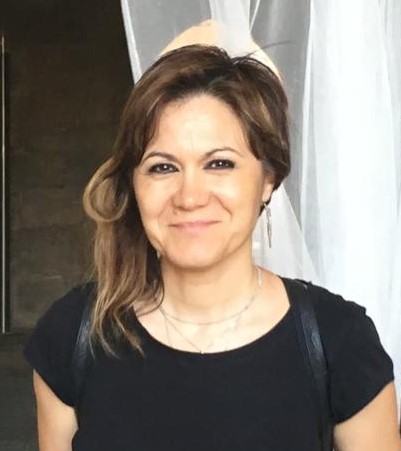
Carla Oliveira, BSc, PhD
Tenure-track Principal Investigator/Group Leader, Expression Regulation in Cancer Group, i3S, Porto, PT
Professor, Medical Faculty Univ. Porto, PT
Certified Consultant for cancer-associated syndromes, Ipatimup Diagnostics Unit, Porto, PT
Carla is internationally recognized for her work in E-cadherin/CDH1-related diseases and hereditary cancer. Her main research interests are 3-fold: 1) disclose the missing heritability in Hereditary Gastric Cancer (HGC); 2) identify genotype-phenotype corrections in carriers of pathogenic variants in cancer-associated syndromes and; 3) develop biomimetic models to understand cancer initiation and identify early disease biomarkers in germline variant carriers. Her team discovered CDH1 and CTNNA1 germline mechanism causing HGC, characterized associated genotype-phenotype associations and developed a novel Stomach-on-a-chip setup with peristalsis for studying stomach diseases ex-vivo.
Carla Oliveira graduated in Biochemist (Coimbra, PT 1996), completed a PhD in Human Biology (Cambridge, UK & Porto, PT 2002), two post-docs (Paris, FR 2004 and Vancouver, CA 2005). Became Junior Researcher at Ipatimup in 2005, and Junior Group Leader in 2008. She was Invited researcher at the Max Planck Institute for Developmental Biology (Tubingen, DE 2011-2012), returning to Tenure-track Group Leader position at Ipatimup (now i3S) in 2013. She is a Certified Consultant for gastric-cancer related syndromes at Ipatimup-Diagnostics, Professor at the Fac. Medicine, Univ. Porto, PT, and was, was the CEO of Bioinf2Bio Bioinformatics Company. She is the Secretary General of the Executive Committee of European Society of Human Genetics and member of its Scientific Program Committee (2017-2025); the past President of the Portuguese Society of Human Genetics, after serving as Chair of its Scientific Program Committee from 2017-2021; National Coordinator of the European Reference Network (ERN) on genetic tumour risk syndromes GENTURIS. She led the Hereditary Diffuse Gastric Cancer branch of the ‘Solve-RD - solving the unsolved rare diseases’ EU-Project (https://solve-rd.eu/), and currently coordinates the PREVENTABLE EU-project, leading teams from 16 Institutions across Europe to understand cost-effectiveness of active surveillance and disease prevention in asymptomatic carriers of cancer-predisposing variants (https://preventable.eu).
She has been granted funds for Human Resources and Research projects totaling >16M€, spoke in >150 conferences, publishing 220 papers (H-index 61 cited >18.000 times). She trained 72 researchers at various career stages in postgraduate programs and supervised >30 students to completion.
For details see: https://www.cienciavitae.pt/3011-EA6C-B5A3
